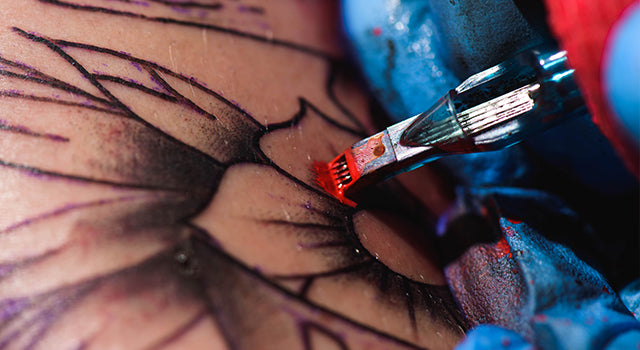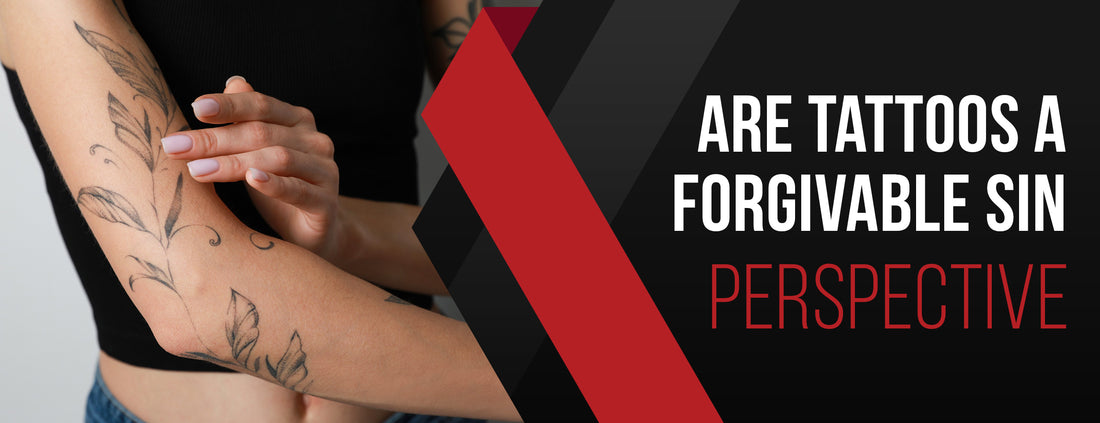It depends on one's interpretation of the Bible and personal beliefs. Tattoos are unacceptable by some Christians and cannot be forgiven. Others don't think tattoos affect their relationship with God because they regard them as a choice. So forgiveness is up to God and depends on one's repentance and willingness to make amends for their actions
Are Tattoos a Forgivable Sin: Christians

Christians have debated tattoos for centuries. Tattoos have been a part of cultures worldwide since ancient times. The religious perspective on tattoos has been controversial. Some religions see tattoos as a sin or forbidden, whereas others do not.
Bible Verses on Tattoos
Many Christians oppose tattoos because they believe that they contradict the Bible. Leviticus 19:28 states, "You shall not make any cuts on your body for the dead or tattoo yourselves: I am the LORD." This verse is often cited as evidence that tattoos are sinful and should be avoided.
There are different interpretations of this verse. Some argue that it only refers to tattoos associated with pagan rituals or mourning for the dead. Others believe this verse is no longer relevant because it was written in a specific historical context and does not apply to modern-day Christians.

Position of the Catholic Church
The Catholic Church does not have an official stance on tattoos. While some priests and theologians believe tattoos are self-expression, they do not pose a threat to one's spiritual well-being. Some Catholics view tattoos as a sign of rebellion and a rejection of traditional values. The decision to get a tattoo is ultimately a personal one, based on the beliefs and values of the individual.
Different Religion's Interpretations of the Bible
Different religions have varying opinions on tattoos and whether they are considered a sin. Here are some examples:
- In Judaism, tattoos are discouraged but not considered a sin. Orthodox Jews may refuse to bury someone with a tattoo in a Jewish cemetery because they believe it defiles the body.
- In Islam, tattoos are forbidden because they alter the body that Allah has created. Having a tattoo is seen as a sign of disrespect for the body and a deviation from Islamic principles.
- In Hinduism, tattoos are not considered a sin but are not encouraged either. It is believed that the body is a temple and should not be defaced in any way.
Cultural and social perspectives on tattoos

Tattoos have always been debated, especially within religious communities. Many people believe that tattoos are a sin. Here is the historical significance of tattoos, their popularity in different cultures and societies, and whether tattoos are a forgivable sin.
Historical Significance
Tattoos have a rich and diverse history. They have been used for various purposes, such as tribal identification, art, and medical practices. Some of the earliest known tattoos date back to 4,000 BC in Egypt and were used to signify social status and religious beliefs. In other cultures, such as Polynesia, tattoos were considered sacred art forms and symbolized spiritual connections to the gods.
Different Cultures
Tattoos have been widely embraced in many cultures, historically and today. Some cultures have even incorporated tattoos, such as Hinduism and Buddhism, into their religious practices. In Japan, tattoos were once associated with criminal activity but have since become a popular form of self-expression and art. Even in the mainstream Western world, tattoos have become increasingly common.

Today's Society
Despite their growing popularity, tattoos are often viewed negatively, particularly in religious communities. Many people believe tattoos are a sign of rebellion or sin and that those who get tattoos are defacing their bodies, which are believed to be temples of the Holy Spirit. Others argue that tattoos are not inherently sinful and can be self-expression and creativity.
Are Tattoos A Forgivable Sin: Motivations for Getting Tattoos
People get tattoos for many reasons, including cultural traditions, personal beliefs, artistic expression, and social identity. Research has shown some common motivations for getting tattoos:
- Self-expression and uniqueness: Many people feel tattoos allow them to express their individuality and stand out.
- Emotional significance: Some tattoos represent important events, memories, or people in a person's life, such as a loved one who passed away or a milestone achievement.
- Body image and self-esteem: For some people, tattoos may enhance their body image and self-esteem, especially if they cover scars, marks, or other perceived flaws.
- Group affiliation and belonging: Tattoos can also symbolize belonging to a certain group, such as a sports team, military unit, or subculture.
Are Tattoos A Forgivable Sin: Psychological Effects

The tattoos of some people may cause them to experience regret or negative emotions, but most see them as positive aspects of their lives. Psychological factors often cause tattoo regret but Some studies have suggested that tattoos may benefit mental health, such as:
Positive
- Increased body satisfaction and self-esteem: For some people, tattoos may improve their body image and sense of self-worth, leading to better mental health outcomes.
- Coping with trauma and distress: Tattoos may also serve to cope with traumatic experiences or emotional distress, allowing individuals to express their feelings and gain a sense of control or closure.
- Social support and connection: Tattoos can also facilitate social connections and support from like-minded individuals, such as supporting tattoos for cancer survivors or mental health advocates.

Negative
- Substance abuse and impulsivity: Some studies have found a link between tattoos and higher rates of substance abuse, risky behavior, and impulsivity, though the causal direction is unclear.
- Anxiety and depression: In some cases, tattoos may be a marker of underlying anxiety, depression, or other mental health disorders, as people with these conditions may seek tattoos as a coping mechanism or a way to distract from their symptoms.
- Trauma and regret: Finally, some individuals may experience trauma or regret related to their tattoos, especially if they were coerced into getting them or if they have negative associations with the design or the process.
- Change of values and identity: Sometimes, people get tattoos at a different stage of life or have different beliefs than they do later on. As they grow and change, they may feel that their tattoos no longer reflect who they are or what they stand for.
Conclusion
The topic of whether tattoos are a forgivable sin is a complex and often subjective one. Ultimately, it is up to each individual to conclude and align with their values and beliefs. Whether one sees tattoos as a beautiful form of self-expression or a violation of the body, there are valid arguments on both sides of the debate.
Whatever choice one makes, it is essential to remember that it is a personal one that should be approached with thoughtfulness and respect for one's beliefs and those of others.


















![Antibiotics and Tattoos: 3 Risks and 3 Effects [with 4 Precautions]](http://drnumb.ca/cdn/shop/articles/Can_You_Get_Tattooed_On_Antibiotics__3_Risks_and_3_Effects_4_Precautions.jpg?v=1714128292)

